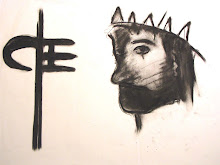Husserl shows why all fields have a conundrum about foundations
and indiscernibles at the origin.
It is because intellectual constructions first emerge naively in the
already-made world preceding the act of reflection. The already-made is also the cultural root out of which all examination grows -- ultimately the most basic indefinables are performances rather
than ideas -- the "basis from which."
 Radical subjectivity tries to get behind this untutored positing -- radical self-investigation is universal self-investigation -- so we try define more narrowly world, time, space, psyche, organism, culture -- perhaps to rid ourselves of these beginnings and replace them with scientific precepts. But to get to this intrinsically first being, we have to face the deep problems of what it means for something to be an accident -- we have to face fate and death and the meaning of human life -- we have to inquire whether it makes sense to distinguish a "genuine" human life from human life just by itself -- in brief we have to confront all the traditional "ethic-religious" problems -- which is why a truly phenomenological investigation must be an all-embracing self-investigation (Cartesian Meditations, § 64).
Radical subjectivity tries to get behind this untutored positing -- radical self-investigation is universal self-investigation -- so we try define more narrowly world, time, space, psyche, organism, culture -- perhaps to rid ourselves of these beginnings and replace them with scientific precepts. But to get to this intrinsically first being, we have to face the deep problems of what it means for something to be an accident -- we have to face fate and death and the meaning of human life -- we have to inquire whether it makes sense to distinguish a "genuine" human life from human life just by itself -- in brief we have to confront all the traditional "ethic-religious" problems -- which is why a truly phenomenological investigation must be an all-embracing self-investigation (Cartesian Meditations, § 64).
The big problems are inside, in the concepts we use -- the
handhold system, upon which we build our sciences -- the truly Cartesian
reflection will take this final jump -- this is a jump into the world we live in and in which we face the problem of orienting ourselves in a positive sense of life-meaning -- a sense of our own responsibility -- thus to lose the world by suspending our judgments about it, and to regain it by self-examination. Thus at the end of his long series of experiments in the Cartesian spirit, Husserl comes back to his initial idea -- Turn back into yourself: truth dwells in the inner man -- know thyself!
